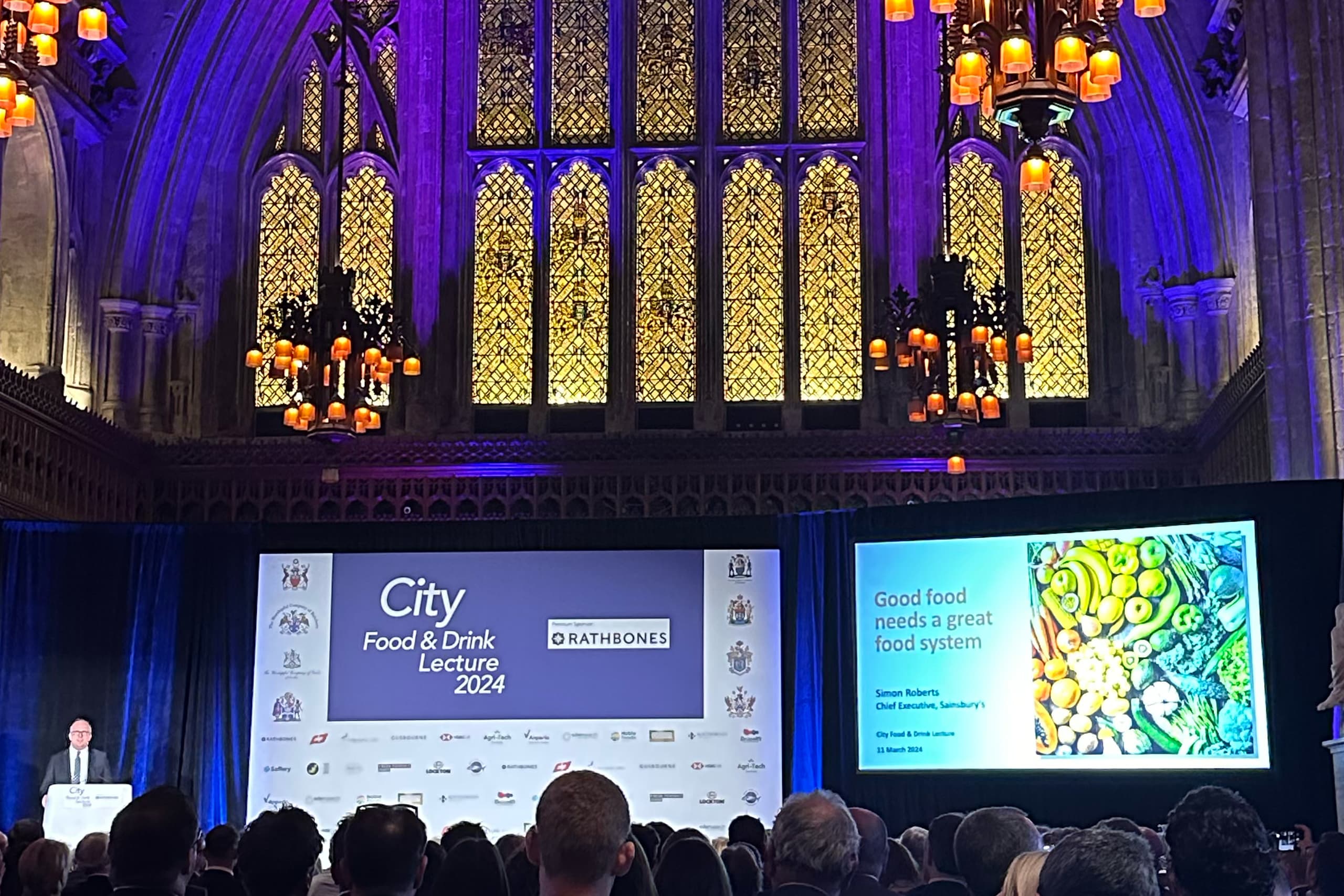While acknowledging that being chosen to deliver the 23rd City Food and Drink Lecture was “a real honour”, Simon Roberts, CEO of Sainsbury’s said he was struck by how “few of my predecessors have come from retail”.
By his calculations, Roberts was the fifth representative of the food and drink retail sphere to have addressed this high-powered cross-industry audience since the turn of the century.
“I think that’s quite telling. It says to me that too often our industry works in silos and is divided. We don’t work together effectively enough to drive the necessary change at a system level,” he admitted. ”Retailers and supermarkets are perhaps, often seen as on one side of the food system, with suppliers, processors and farmers perhaps on the other.”
This needs to change, he said and promised to “set out a vision for a big system, which works for everyone.”
What followed, however, left many in the audience feeling they’d heard it all before. The title of the lecture was ‘Good food needs a great food system’, which is an incontrovertible truth. And once Simon had begun to explain his vision with “if we are to achieve [change] and build resiliency into our food system, then a new culture of collaboration and longer-term partnership will be crucial”, an air of polite resignation gradually filled Guildhall.
The food and drink industry does a “remarkable job”, he said, but it is fragile and at a crossroads. Without changing the way the supply chain interacts, the challenges for others further down the line are going to become more intense. “Historically the relationship between supermarkets and their suppliers has too often been too short-term and not built sufficiently on long-term partnership,” added Roberts.
“This approach won’t work anymore. We are moving towards more longer-term agreements in key supply chains, giving farmers and suppliers the confidence to invest for the long term and improve their sustainability.
“Get it, right and we will have a food system, which supports British farming, improves sustainability, helps enable a healthier population and drives economic growth and job creation,” Roberts said.
New NFU President Tom Bradshaw, who sat on the subsequent panel, perhaps summed up best what the more sceptical members of the audience were thinking. The Sainsbury’s CEO did not say anything that you could necessarily disagree with, Bradshaw said, but he felt he could have written 95% of his speech for him.
Arguably the most significant theme of the evening was uniform criticism from both Roberts and the panel that followed him of government food policy, or a perceived lack of it. Perhaps because there is an underlying feeling that political change is on the horizon, the government was accused of taking the nation’s food industry for granted, lacking understanding of food production and being incapable of formulating policy that supports domestic growers, rather than hinders them.
In calling for a Food Minister to oversee meaningful political intervention, Roberts warned that currently “well-intentioned but inconsistent government policy” and a “conveyor belt of conflicting policies” are damaging the UK’s farming sector. He said: “Concerns about the direction of policy combined with the system of farm payments post-Brexit have discouraged producers from investing, and there is real concern in farming communities about the unintended consequences for the future of UK food production.
“We all recognise the need to make our food system more sustainable, but the current approach risks inadvertently reducing the level of UK production. This will affect capacity here and lead to more imported food – which of course is less sustainable.
“We can build a more resilient and more sustainable food system, but only if everyone involved in the supply chain – retailers, suppliers, farmers and the government – are deeply committed and aligned to work together to drive long-term change and improvement,” he said.
“We need a policy framework which supports producers to sustain sufficient output in the UK, while encouraging biodiversity, reducing carbon and delivering regenerative farming to secure our food supply.”

